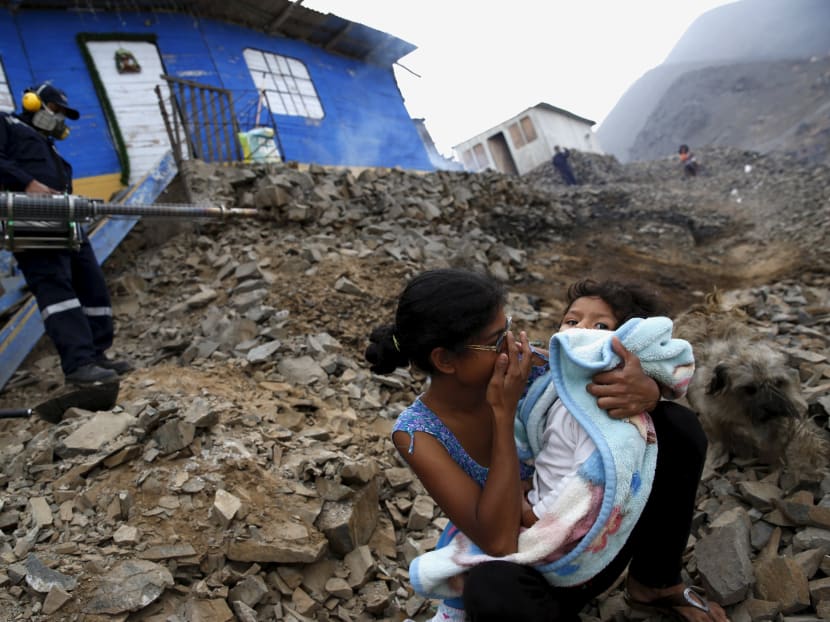Zika may be ‘under-diagnosed’ in SEA; WHO in crisis mode
SYDNEY/GENEVA — Infectious disease experts have warned that the Zika virus, which is spreading rapidly worldwide, is likely under-diagnosed in South-east Asia, even as a report indicates mosquito bites may not be the only form of transmission.

A health worker fumigates a house as residents wait outside during a campaign against the Zika virus and other mosquito-borne diseases at Carabayllo district on the outskirts of Lima, Peru February 1, 2016. Photo: Reuters
SYDNEY/GENEVA — Infectious disease experts have warned that the Zika virus, which is spreading rapidly worldwide, is likely under-diagnosed in South-east Asia, even as a report indicates mosquito bites may not be the only form of transmission.
This comes as the World Health Organization (WHO) convened an emergency committee yesterday to debate whether a Zika virus outbreak suspected of causing a surge in birth defects in South America should be considered a global health emergency.
According to a report published in the Southeast Asian Journal of Tropical Medicine and Public Health, an Australian man was diagnosed with acute Zika virus in May 2015, five days after he was bitten by a monkey at Bali’s Ubud Monkey Forest. He was also bitten by mosquitoes. Although mosquito-spread transmission was possible, the report said the monkey bite could also be a possible source of transmission.
“Transmission of Zika virus by monkey bite or other (non-mosquito) routes, and attribution of illness to dengue or other infections, may be more frequent than the absence of prior reports suggests,” said the Sydney Morning Herald, citing the report.
Early last year, another set of researchers studying an outbreak of dengue fever in Jambi, central Sumatra, stumbled on an Indonesian man who contracted the Zika virus despite never having left the country.
Victorian Infectious Diseases Reference Laboratory director Mike Catton said it was hard to know if Zika was under-diagnosed in Indonesia. He said it was unlikely that a “large outbreak” such as the one currently taking place in South America could be overlooked.
The WHO warned last week that the mosquito-borne virus was “spreading explosively” in the Americas, with the region expected to see up to 4 million cases this year.
Yesterday’s emergency committee meeting took the form of a telephone conference between senior WHO officials, representatives of affected countries, and experts from around the globe. The committee is not expected to make its decision public until today at the earliest. But the scale of concern is underlined by the emergency session — such consultations are relatively rare.
The WHO is under pressure to act quickly in the fight against Zika, after admitting it was slow to respond to the recent Ebola outbreak that ravaged parts of West Africa.
Although the mosquito-borne virus’ symptoms are relatively mild, it is believed to be linked to a surge in cases of microcephaly, a devastating condition in which a baby is born with an abnormally small head and brain.
Brazil, the hardest hit country, sounded the alarm in October, when a rash of microcephaly cases emerged in the north-east. Since then, there have been 270 confirmed cases of microcephaly and 3,448 suspected cases, up from 147 in 2014. Amid alarm over the surge in microcephaly cases, Colombia, Ecuador, El Salvador, Jamaica and Puerto Rico have even warned women to delay conceiving until the outbreak is brought under control.
Jitters over Zika have spread beyond affected areas to Europe and North America, where dozens of cases have been identified among people returning abroad. There is currently no treatment, and the WHO has said it would likely take more than a year to develop a vaccine. AGENCIES






